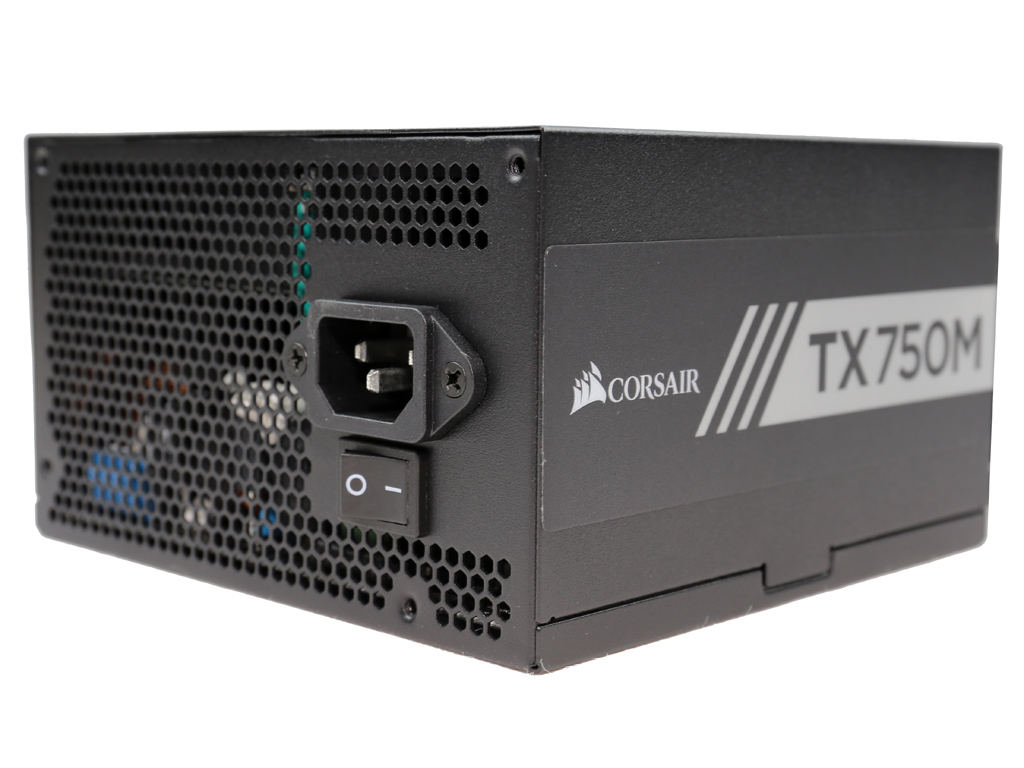Corsair TX750M PSU Review
Why you can trust Tom's Hardware
Final Analysis
Corsair's new TX-M family is based on a good platform that seems to be reliable enough (otherwise the company wouldn't cover it with a seven-year warranty). Only Japanese capacitors are used for ripple filtering, though Chemi-Con's KZE series isn't our favorite. The few Rubycon caps inside the TX750M offer higher quality, as do the polymer Chemi-Cons we found.
The lack of a semi-passive mode will put an extra burden on the 120mm rifle-bearing fan's shoulders. Again, though, we look to Corsair's seven-year warranty as proof that the company is confident in its design. A good rifle-bearing fan has almost the same lifetime as a double ball-bearing one, generating less noise over time, since DBB fans get louder as they age.
The TX750M's strengths include resilience to high ambient temperatures, good efficiency levels, tight load regulation, and solid build quality, along with an accurate power-good signal. On the other hand, we didn't like the low hold-up time we measured. Moreover, the ripple at +12V should be lower than 40mV, and the 3.3V rail's transient response is just terrible. We also think that a 750W power supply should include two EPS connectors, not just one. This flaw affects the RMx family as well, which is more expensive than Corsair's TX-M line.
Although the PSU is fairly quiet under operating temperatures close to 30°C, once the ambient exceeds 35°C, its fan starts spinning a lot faster. It's normal for Corsair to be extra cautious in warm environments, given the long warranties it provides. However, such a large difference in fan speed between normal and high temperatures is kind of weird, particularly under light loads. Even a 20W load forced the fan to spin at almost 1200 RPM at 37°C ambient. Some competing PSUs with similar efficiency don't even spin their fans up at 20W, and many include equal or longer warranties.
Corsair's TX-M family is an interesting addition to the mid-range PSU market. If you don't mind its semi-modular cable design and aggressive fan profile under high ambient temperatures, we think the TX750M is worth considering as an affordable, yet highly reliable solution. If you'd prefer a more universally quiet PSU and don't mind spending a little extra money, then one of Corsair's RMx units would probably be better. We're also anxious to check out Seasonic's upcoming Focus family, which should be priced similarly as the TX-M models.
MORE: Best Power Supplies
MORE: How We Test Power Supplies
Get Tom's Hardware's best news and in-depth reviews, straight to your inbox.
MORE: All Power Supply Content
Current page: Final Analysis
Prev Page Performance, Value, Noise & Efficiency
Aris Mpitziopoulos is a contributing editor at Tom's Hardware, covering PSUs.
-
NinjaNerd56 I have one of the 'sister' versions of this PSU. I like it a lot. My case is all air cooled, so I never hear the fan on the Corsair.Reply -
Dom_79 So I guess this is a "re-release" of the TX-xxxM semi-modular line?Reply
https://www.newegg.ca/Product/Product.aspx?Item=N82E16817139030
I have one of these ^ sitting in a box somewhere. Not that bad a unit but I hope they don't go through another "V2" fiasco with thise new line. If memory serves, the last time the issue was attributed to using a newer OEM manufacturer...
Great review though! Very thorough and well presented :) -
Nuckles_56 Thanks for the review Aris, it looks like with a few tweaks, this platform could really kill itReply -
Dark Lord of Tech Any chance to review the new CX series released by Corsair recently. Not the M , but the non modular CX.Reply
